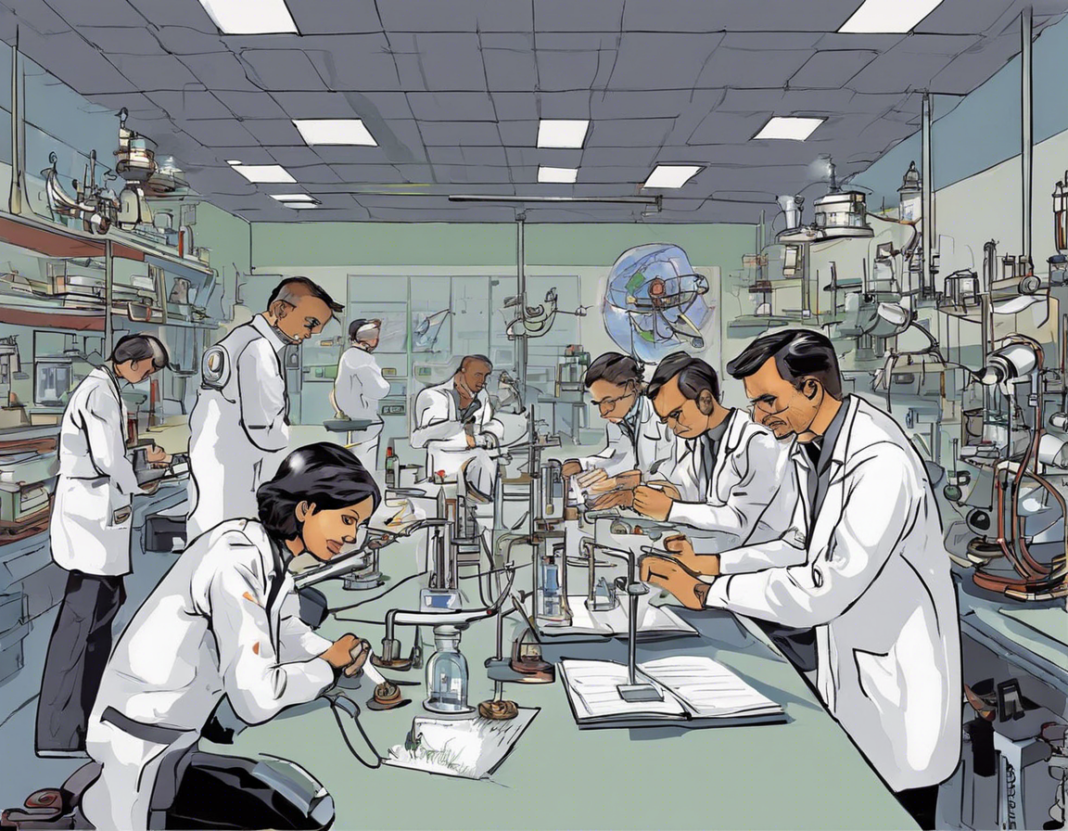Introduction
India’s space agency, the Indian Space Research Organisation (ISRO), has soared to great heights in recent years, earning global acclaim for its ambitious space missions and groundbreaking scientific research. For those aspiring to become part of this prestigious organization as a scientist, the journey is one filled with dedication, perseverance, and a commitment to excellence. In this comprehensive guide, we will outline the steps to becoming an ISRO scientist, including the educational requirements, relevant skills, job outlook, and essential tips for success in this competitive field.
Educational Requirements
Becoming an ISRO scientist begins with a strong educational foundation. The minimum educational requirement for entry-level positions is a Bachelor’s degree in engineering or technology from a recognized university. However, most scientists at ISRO hold advanced degrees such as Master’s or Ph.D. in disciplines like Aerospace Engineering, Electronics, Mechanical Engineering, or Computer Science.
Key Skills and Qualities
To excel as an ISRO scientist, certain key skills and qualities are essential:
-
Analytical Skills: Scientists at ISRO must possess strong analytical skills to interpret complex data and solve scientific problems.
-
Teamwork: Collaborating with multidisciplinary teams is a crucial aspect of working at ISRO, requiring strong teamwork and communication skills.
-
Innovation: The ability to think creatively and innovate is highly valued at ISRO to drive technological advancements in space research.
-
Attention to Detail: Precision and attention to detail are vital in space research to ensure accuracy and reliability in scientific findings.
-
Adaptability: Scientists at ISRO must be adaptable to evolving technologies and methodologies in space exploration.
Career Path
The career path to becoming an ISRO scientist typically involves the following steps:
-
Undergraduate Education: Pursue a Bachelor’s degree in engineering or technology from a recognized institution, focusing on relevant disciplines such as Aerospace Engineering, Electronics, or Computer Science.
-
Postgraduate Education: Consider pursuing a Master’s degree or Ph.D. in a specialized field related to space research to enhance your knowledge and expertise.
-
Internships and Research Projects: Gain practical experience through internships and research projects at reputed institutions or organizations to build a strong foundation in space science.
-
ISRO Entrance Exams: Prepare for ISRO entrance exams such as the Scientist/Engineer ‘SC’ exam or the ISRO Centralized Recruitment Board (ICRB) exam to qualify for positions within the organization.
-
Career Progression: As a scientist at ISRO, you can progress through various levels based on experience, expertise, and performance, with opportunities for leadership roles in research and development projects.
Job Outlook
The job outlook for ISRO scientists is promising, given the organization’s continuous pursuit of cutting-edge space missions and research projects. With India’s ambitious space exploration goals and the increasing demand for satellite technology, there is a growing need for skilled scientists and engineers in space research and technology development.
Tips for Success
To succeed in becoming an ISRO scientist, consider the following tips:
-
Continuous Learning: Stay updated with the latest developments in space science and technology to enhance your knowledge and skills.
-
Networking: Build a strong professional network within the scientific community and explore collaboration opportunities with experts in the field.
-
Research Publications: Contribute to research publications and conferences to showcase your expertise and establish credibility in the scientific community.
-
Skill Enhancement: Invest in continuous skill enhancement through workshops, training programs, and certifications to stay competitive in the field.
-
Persistence: Be persistent in your pursuit of a career at ISRO, as the selection process can be competitive, requiring dedication and perseverance.
Frequently Asked Questions (FAQs)
- What are the different roles and responsibilities of a scientist at ISRO?
-
Scientists at ISRO are involved in various aspects of space research, including satellite development, mission planning, data analysis, and technology innovation.
-
Is prior work experience necessary to become an ISRO scientist?
-
While prior work experience is not mandatory, having relevant experience through internships or research projects can enhance your chances of selection.
-
What is the selection process for ISRO scientist positions?
-
The selection process typically involves written exams, interviews, and verification of educational qualifications and experience.
-
Can foreign nationals apply for scientist positions at ISRO?
-
ISRO primarily recruits Indian nationals for scientist positions due to security and research considerations.
-
What are the opportunities for career growth and advancement as an ISRO scientist?
- As an ISRO scientist, there are opportunities for career advancement through research projects, leadership roles, and participation in national and international space missions.
In conclusion, becoming an ISRO scientist is a prestigious and rewarding career path that requires a strong educational background, relevant skills, and a passion for space exploration. By following the outlined steps, honing key skills, and staying abreast of advancements in space science, aspiring scientists can embark on a fulfilling journey towards contributing to India’s space research endeavors at ISRO.

